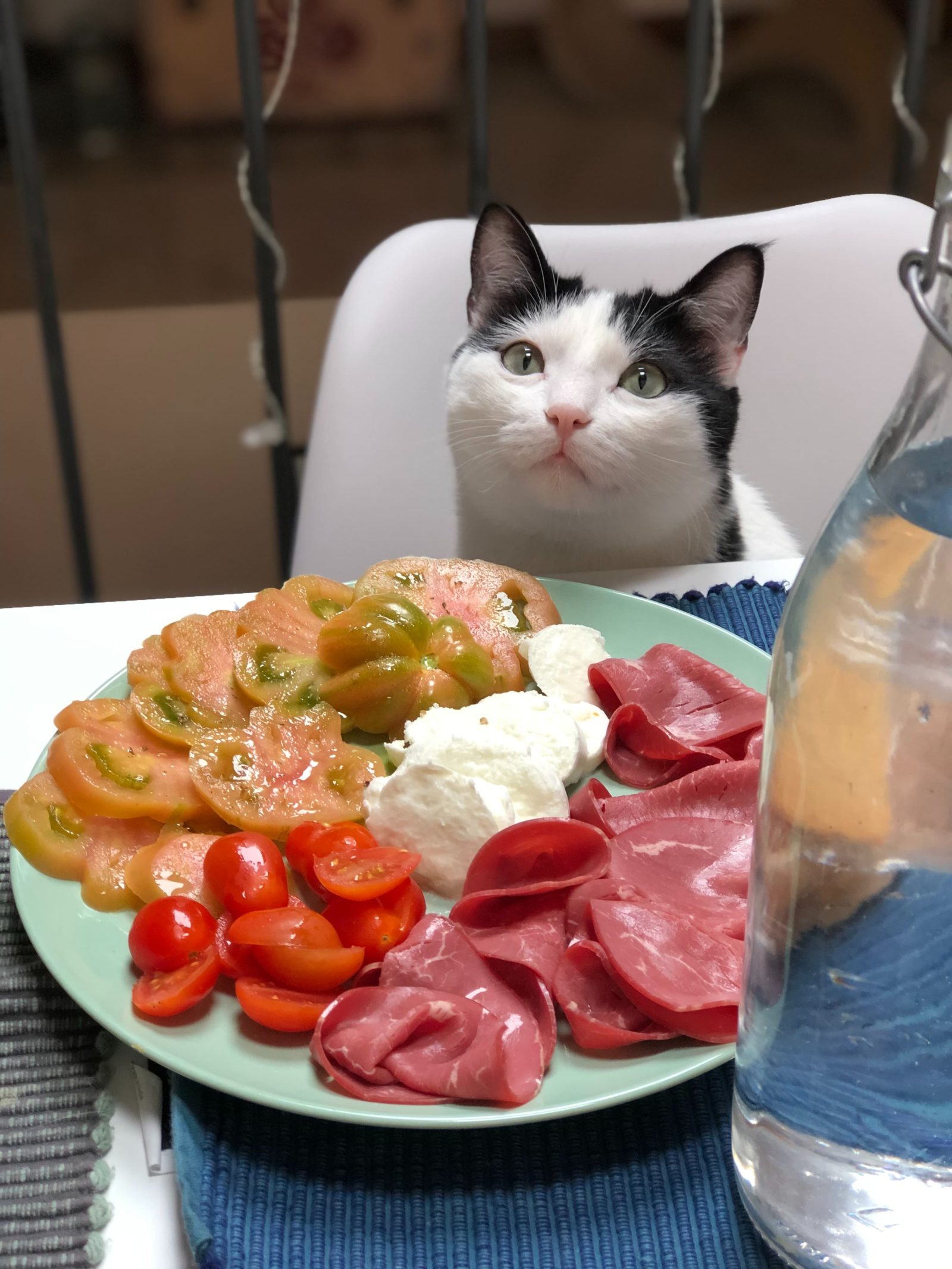
Contents
Home-made Cat Food – Introduction
Cats are picky eaters. They’re also independent and don’t like to be told what they can or can’t eat. That’s why it’s essential to make sure that the diet you choose for your Cat is healthy, nutritious, and enjoyable for them! There are a few things you’ll need before embarking on this DIY project:
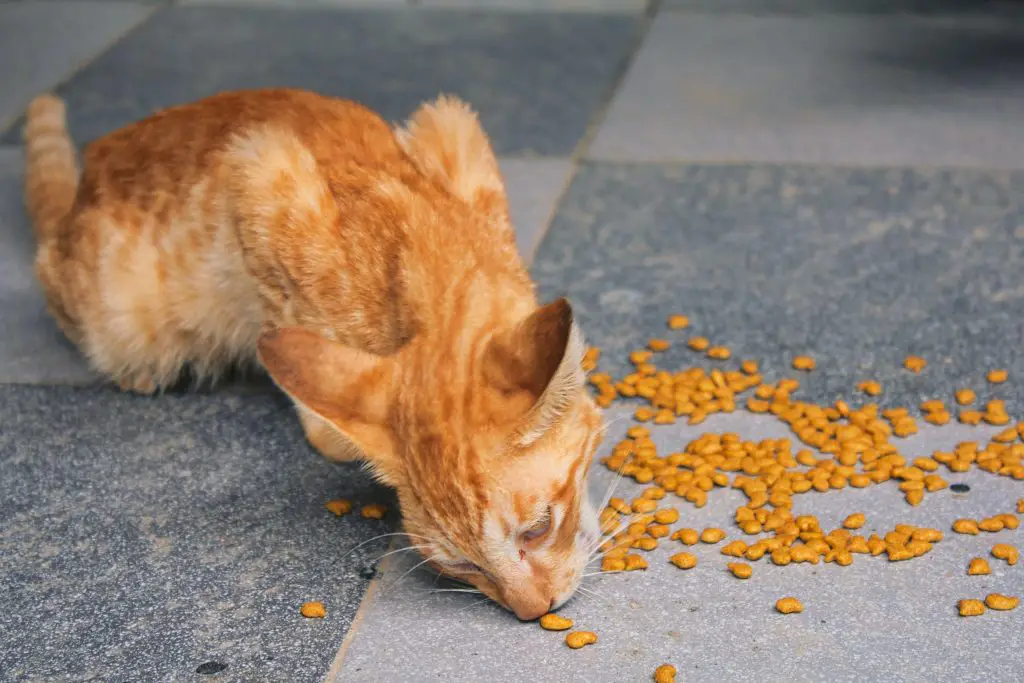
Decide if homemade cat food is right for you.
Make sure you have the time and money to make your cat food.
Your Cat should be able to eat the food without getting sick or having an allergic reaction (if they do get sick after eating something new, see a vet immediately).
Make sure your Cat has plenty of water available at all times—they need it for hydration and digestion!
Choose a recipe to use.
Read the recipe. Before you begin cooking, check to see if it is complete and balanced. This means that each ingredient is listed in order of weight or volume, and there are no missing nutrients or proportions.
Check for the nutritional value of homemade cat food recipes. If you want your pet to eat a healthy diet, ensure that you give him a balanced diet with adequate amounts of protein, fat, and carbohydrates (complex carbs).
Check with your vet before making any changes to your Cat’s diet.
Before you start making your cat food, it’s essential to speak with your veterinarian. Your vet can help you decide if your Cat is healthy enough to eat homemade food and which recipes are best for them. They may also be able to recommend supplements if needed.
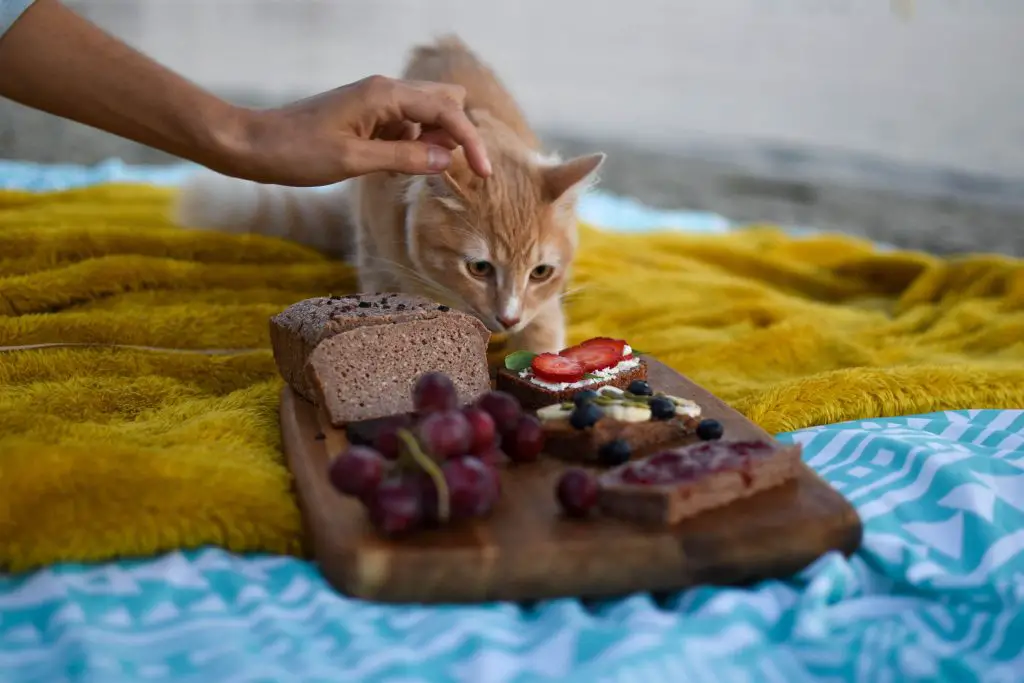
Meat for Cats
Meat should be the main course in homemade cat food. You can use any meat, but you will want to cook it thoroughly and drain, chop or mix in with other ingredients for your Cat. Cats love their meat! Remember: it’s all about serving healthy meals that make you feel good about yourself too!
Meat is an essential part of a cat’s diet. It contains high levels of protein and low levels of carbohydrates, making it an ideal food for cats. Cats need meat to keep their teeth healthy since they have no teeth in the front row (the first two). Eating plenty of meat also helps prevent digestive problems like diarrhea or constipation. Finally, many studies show that eating meat may even help improve skin health!
The meat must be cooked thoroughly, drained, chopped, or minced, and fed to the Cat warm or cold.
- Feed it warm or cold to avoid bacterial growth in the Cat’s mouth.
- Feed your Cat minced meat such as chicken, turkey, lamb, or beef.
If your Cat likes a particular type of meat, you can feed it to them as long as they don’t have a sensitive stomach. Some cats prefer chicken; others prefer beef. Some also enjoy turkey and lamb; fish is another popular choice for cats who are more selective about their diet. Rabbit and venison are also options if you can access those meats at home!
Cats are carnivores, so lean meat is a must for every meal.
You can make homemade cat food with the same ingredients you would use to feed your pet. The only difference is how they are cooked and processed. Meat should be the main course in homemade cat food, so you must cook the meat thoroughly before draining, chopping, or mincing it for your kitty. Try to buy pre-ground meat from a butcher or supermarket because this makes for an easy process when preparing meals!
Feeding canned food is another option if you don’t have time or energy to prepare fresh meals every day but still want something nutritious for your feline companion’s diet.
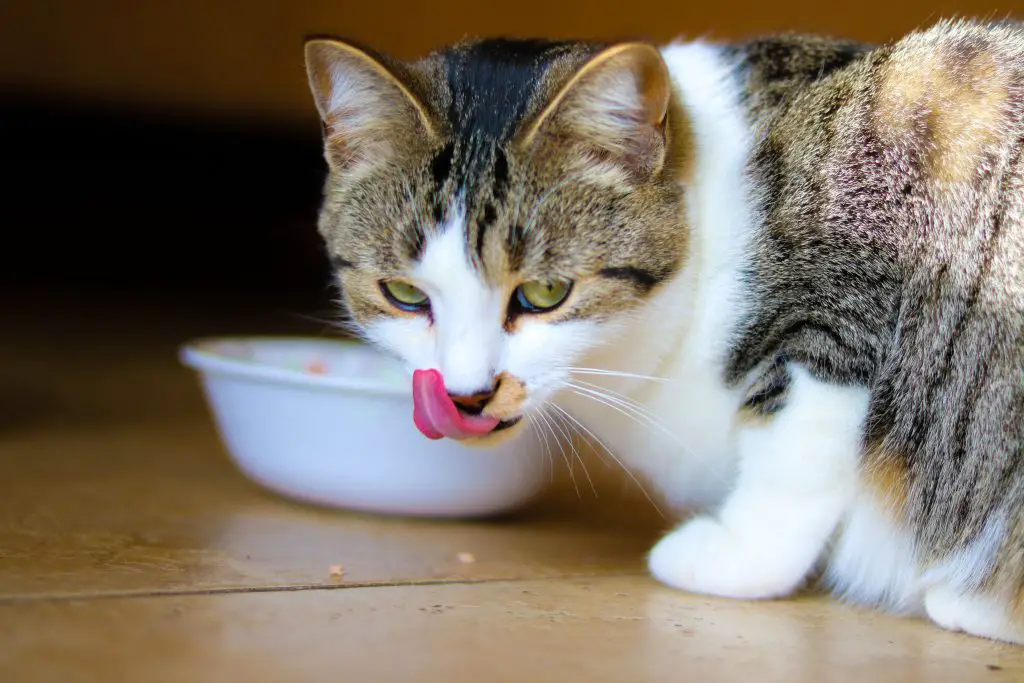
Bison
Bison meat is high in protein, low in fat, and rich in minerals. Bison meat is also a good source of iron and zinc.
Bison Meat is Low in Cholesterol
Bison meat has less cholesterol than chicken or turkey because it has no feathers, skin, or other parts that can contribute to high amounts of cholesterol in your diet.
Chicken
Chicken is an excellent source of protein and calcium, which can help keep your Cat’s teeth and bones strong. Chicken also contains Vitamin B1 (thiamine), Vitamin B3 (niacin), and choline. These vitamins are essential for maintaining normal nerve function in the body and helping to keep your Cat’s eyes healthy.
Turkey
Turkey is an excellent source of protein, which helps keep your Cat’s body in good shape. Turkey has very little fat and contains many vitamins and minerals that are important for the health of your Cat. It also has high levels of niacin (vitamin B3), selenium (an antioxidant), and zinc—all nutrients that can help with weight control.
Salmon
Salmon is an excellent source of Omega 3 fatty acids, essential for brain development and cardiovascular health. It also contains protein and Vitamin D, B Vitamins, and Selenium—all beneficial to your Cat’s health.
Salmon is an excellent source of protein because it contains all essential amino acids (the building blocks of proteins) in perfect balance, according to Cornell University’s Food Composition Database. The best part? Salmon has less than 1% fat content, so you’ll be feeding your pet only healthy fats instead of unhealthy fats from other animal sources like chicken or beef jerky treats!
Beef
Beef is an excellent source of protein, which helps maintain your body’s energy levels. Beef also contains iron, vitamin B12, and vitamin B6. These nutrients help support healthy immune function and help your pet stay strong throughout the day!
If you’re looking for an all-natural way to feed your Cat or dog some extra protein without buying expensive supplements from the vet clinic (or worse—going through a shady pet store), try making your homemade treats today!
Duck
Duck is an excellent source of protein and vitamins. Duck has more iron than beef, more selenium than pork tenderloin, and more phosphorus than chicken breast. Duck also provides vitamin B12 and choline.
Rabbit
Rabbit is one of the best protein sources for cats and can be prepared in several ways. Although it does contain fats, the rabbit has less fat than chicken or beef. This is because rabbits do not eat grains as cows do; instead, they eat grasses and other plants that contain more fiber than grain products (e.g., rice).
The main advantage of feeding rabbits as a food source is that it’s rich in taurine, which helps prevent heart disease in cats because it increases their antioxidant levels by enhancing their effectiveness against free radicals.
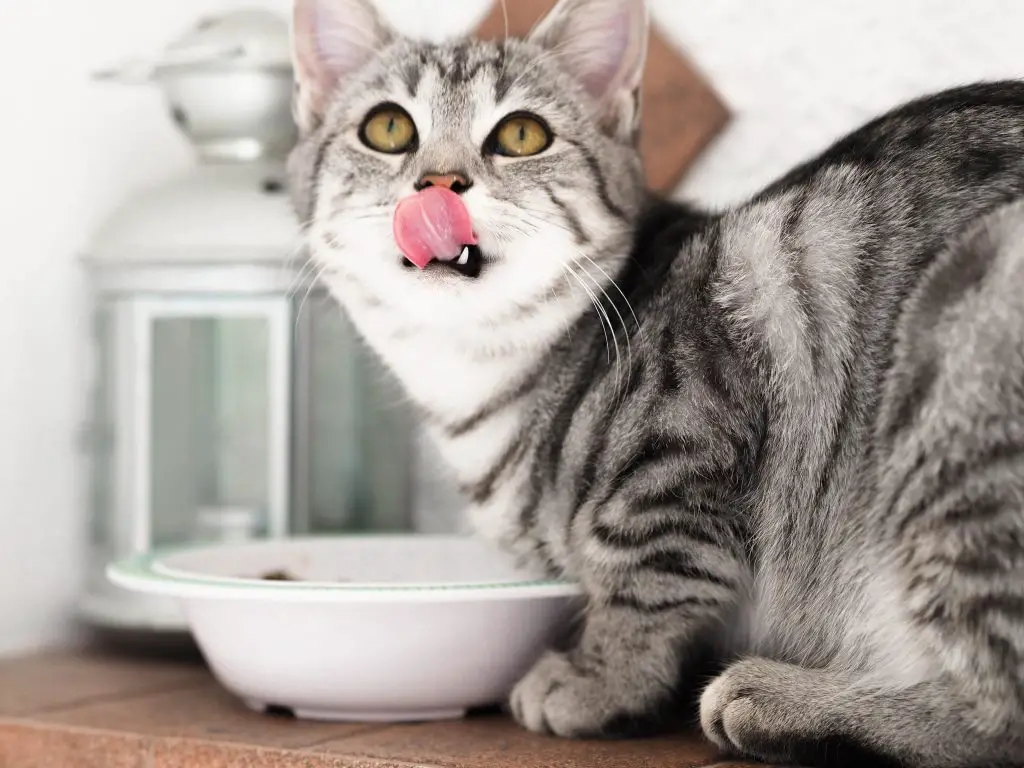
Easy Homemade Cat Food Recipe with 4 Ingredients: https://www.youtube.com/watch?v=T6-W_QkFXBI
Gather the ingredients you need.
To make your cat food, you will need the following ingredients:
- Meat (chicken or turkey)
- Vegetables (spinach, carrots, celery)
- A high-quality grain such as oatmeal or rice.
This is a great time to use up some of the leftovers from your freezer! You can also use dehydrated beans or lentils instead of adding fresh ones at this point if you have them on hand.
Cook the food.
Cook the food. Use a food thermometer to ensure your homemade cat food is cooked correctly. Cooking time depends on the recipe, but it should be between 45 minutes and 3 hours for most recipes. Be careful not to overheat the food; this can cause botulism in cats, so make sure you cool it down before feeding it!
Store cooked and uncooked food safely.
- Don’t leave food in the sun or store it in a hot car.
- Refrain from freezing raw meat, fish, poultry, or eggs for more than one day. Freezing may damage its nutritional value and flavor.
- Keep containers used for human foods (such as plastic) out of reach from pets when storing pet food so that they don’t get into your pet’s bowl and contaminate it with germs they might not want to eat themselves!
A homemade diet can be healthier for your Cat, but ensure it contains all the necessary nutrients it needs. Cats are carnivores and require a diet consisting of animal protein, fat, vitamins, and minerals. The food you choose should be free from artificial ingredients or preservatives that may harm your pet’s health.
Cats are particularly susceptible to nutritional deficiencies because they do not produce their own vitamin C (ascorbic acid) or B-complex vitamins like other mammals. Therefore you must ensure that adequate amounts of these critical nutrients are present in every meal you prepare for your feline friend!
Conclusion
Now that you know all about homemade cat food and how to make it, it’s time to start! The best part is that you don’t have to worry about anything because we’ve provided everything here: recipes, ingredient lists, and all the tips to prepare your feline friend’s meals successfully. To sum it up, follow our advice when making any changes (like adding more or less fiber) to give your kitty the best possible meal ever!
More Links;
What Human Foods Cats Can Eat – 09 Super Foods You Can Give Your Kitty! https://adoptanim.com/what-human-foods-cats-can-eat/

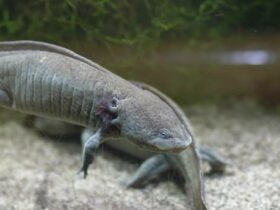
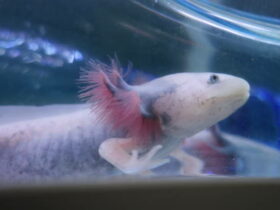
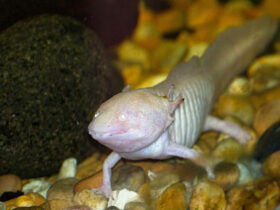
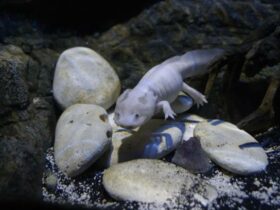
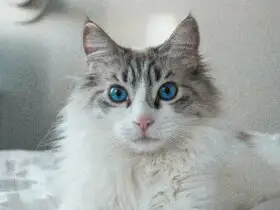
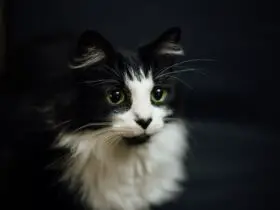
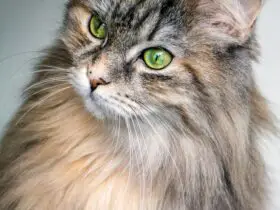

Leave a Reply